Pay-Per-Click (PPC) advertising is essential for businesses seeking fast and measurable results.
However, to ensure your PPC campaigns deliver optimal return on investment, you need constant audits due to constant algorithm changes, audience behavior, and competitive landscapes.
This guide shows you how to do a PPC audit to assess business performance and make data-driven decisions that boost your return on investment.
Don’t miss out because your company may need it!
What is a PPC Audit?
A PPC audit is a process that helps businesses determine the campaign performance in both the short and long term. It measures cost, ROI, ad relevance, ad copy, and other factors to develop an optimization plan to maximize the ad group and all ad campaigns.
A PPC campaign needs constant iterations to find better ways to connect and convert. Whether with better campaign settings or increasing ad spend, a PPC audit will show how to improve your returns.
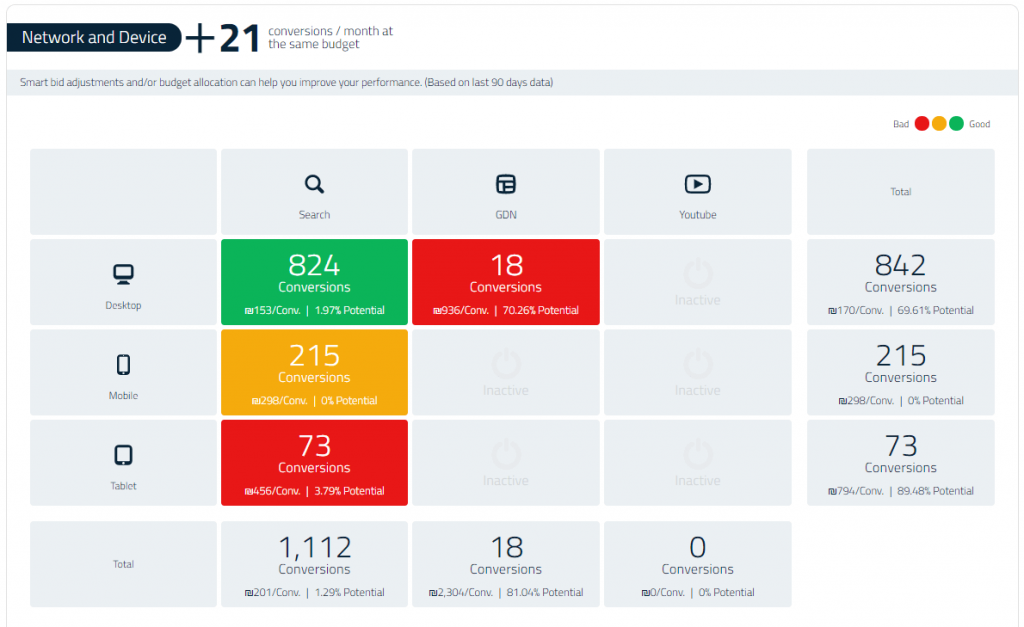
Benefits of Using PPC Audits
Developing PPC audits in your business brings you the following benefits:
Paid Search Campaigns Performance
PPC ads audits allow you to understand how your time and money are invested throughout your campaign and learn if your efforts are working.
The audit allows you to find spaces for improvement throughout a period.
Performance Issues Discovery
PPC Audits allow you to find flaws in your strategy. You can pinpoint them and prepare a strategic plan that fixes the previous issues.
Competitors Comparison
Staying ahead of the competition is as important as having one to improve your value proposition.
A PPC audit lets you get information about your Google ads account campaign and see how it’s developing compared to your competitors.
Ad Campaign Improvement
You can find out if your marketing or remarketing campaigns are being developed to their fullest, if you need better research to find relevant keywords, or if your ads aren’t directing to your landing pages.
Audience Identification
An audit allows you to understand your target audience better. You can see how people interact with your ad and find negative keywords that you shouldn’t include in your PPC strategy.
You will also find what your audience likes and how they experience your content.
How Often Should You Make a PPC Audit?
You should make a PPC audit at least once every three months. However, depending on your company’s size, you may want to prepare constant reviews to see how the ads perform.
So, remember that you’ll need to document the process and establish clear KPIs to measure the changes you make in your campaign.
Note: Preparing less than three months’ audits could be difficult if you don’t have an in-house PPC team.
Elements Before Starting a PPC Account Audit
You can find the elements you need to perform a PPC audit in Google Analytics and the PPC platforms’ data section.
Let’s break them down:
PPC Audit Data Source & Spreadsheet
Ensure you download real-time data from your Google AdWords, Analytics, or Bing Ads to analyze and work with them.
The PPC audit also requires a spreadsheet containing all the information relevant to your campaign. You could download a template online for a simple sheet with relevant information.
Download a format compatible with Excel or Google Docs so all managers can access it.
This will allow you to share changes and mods with all stakeholders involved.
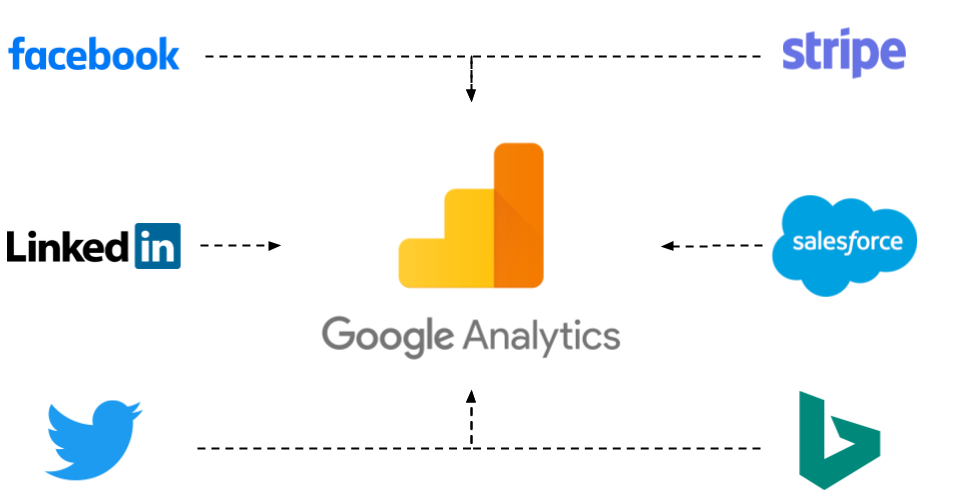
Account Structure
Consider rechecking your ad account structure and make it easily identifiable to your managers. The best example is that if your business is dedicated to selling tech products and you’re promoting a new pair of headphones, your PPC ad should have a name related to that.
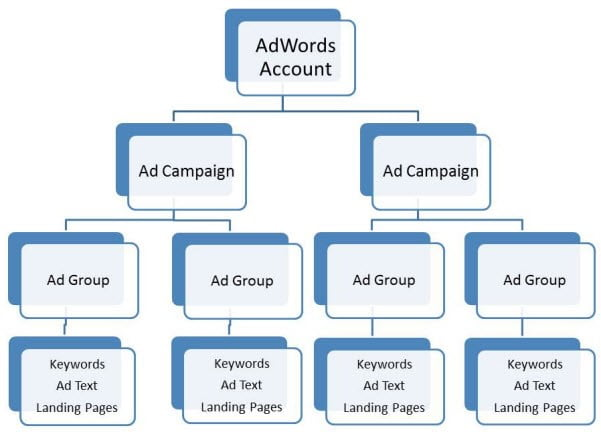
Check Google Analytics Link
Review your Adwords account and its link with Google Analytics. To connect all conversion tracking codes with your business, you must ensure this works correctly.
This will allow you to access multi-channel funnels and get information about search queries and your customer journey.
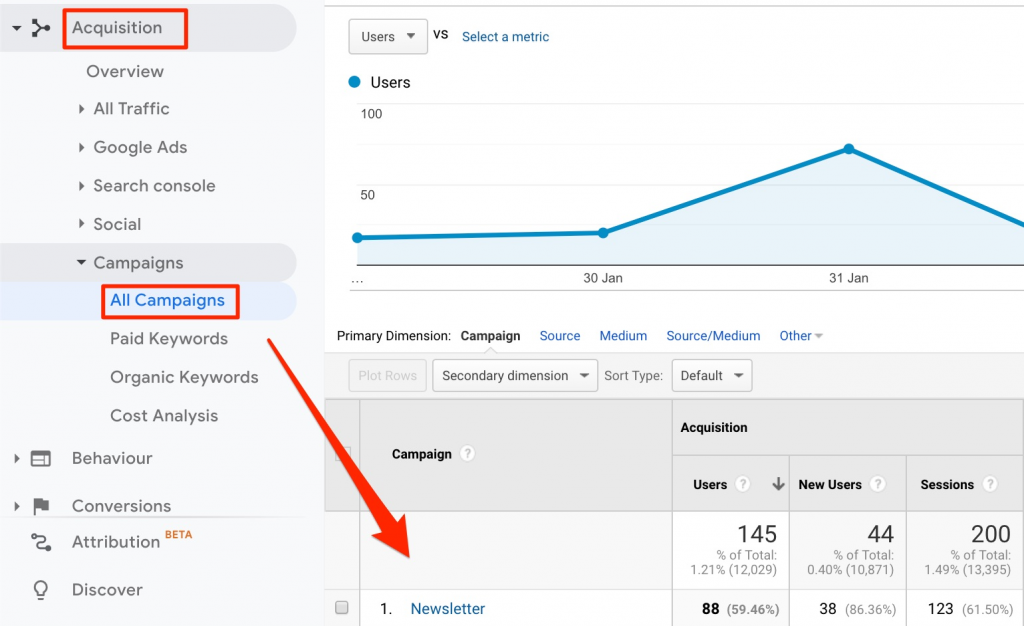
Elements of a PPC Audit
Here are the elements you should include in a complete PPC audit.
Tracking Code Links
Before starting, ensure your tracking codes are correct and set. Check the following:
- Tracking URLs
- Conversion parameters
- Goals
- UTM parameters
If something is not working properly, you could ask your specialists these questions:
- Are conversion tags working correctly?
- Is data being appropriately captured?
- Can we improve data recording?
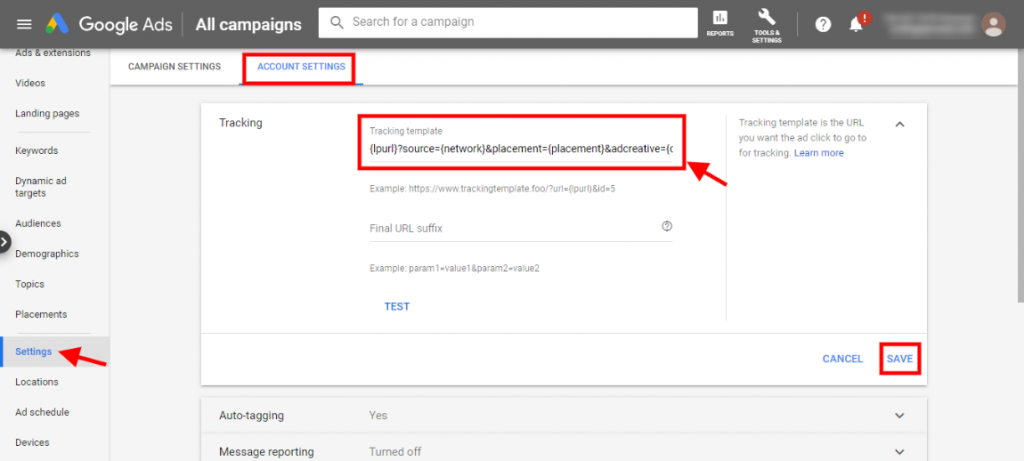
Right Target
Ask your business:
- Do we target the right audiences with our keyword research?
- Do our search terms have enough traffic volume to support our campaigns?
- Do we have a negative keyword list so we know which terms to avoid?
- Are our customers similar to the target audience?
Why?
Because you could have the best search ads with great ad copies and all, but if you don’t target the right audience, you won’t get conversions.
You can use PPC account audits to determine if your audience is a match for the message you’re using.
Ad Groups Alignment
The ad groups should be correctly structured and match the message you’re trying to communicate.
This will clear the data and ensure ad relevance to improve your performance.
Ask questions like:
- Do we have the proper structure for the ad group?
- Do the ads target different audiences or customer journey stages?
- Does the ad copy match a relevant keyword and the overall ad group?
- Can we segment our ads, including demographics, interests, and other ad group factors?
- Is the ad copy good enough for all our ad groups?
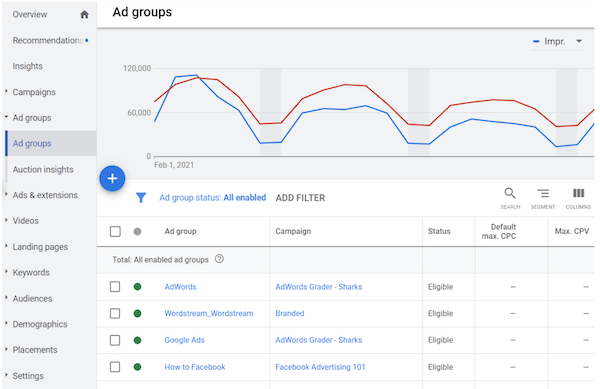
Campaign Types
Does your campaign have the correct format and type?
Do your ad formats match your company goals and objectives?
Are you willing to try new formats?
Could you use new models like mobile ads, text ads, etc?
These questions will help you determine if your business has the right campaign type and works correctly. The idea is that you try separate campaigns in A/B testing to see what works better.
For example, video ads are one of the best content for consumers. According to Oberlo, 73% of consumers were influenced by video ads.
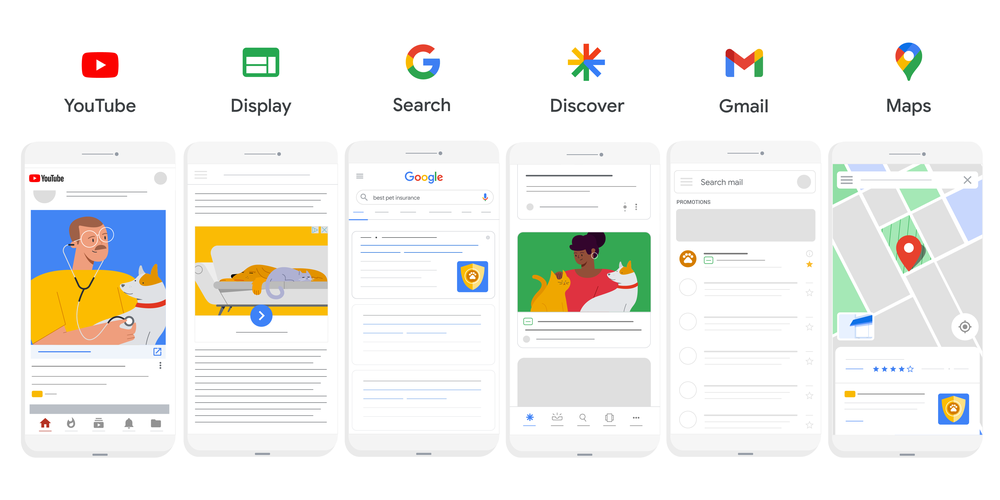
Keyword List & Segmentation
Your keywords and audience segmentation help you get conversions in a PPC strategy. They must be connected to your ads, messages, and designs.
The more accurate and consumer-aligned they are, the more relevant they will be. Hence, increasing your Quality Score, which gives you a lower CPC.
So, you must have three things aligned:
- Keywords
- Target audience
- Business value proposition
- Product/service
If you have problems finding out this information, you could ask these questions:
- Are your keywords relevant to your audience?
- Do you need new keyword opportunities for your business?
- Are exact match keywords being correctly used?
- Do you use long-tail keywords in your ads?
- Are you constantly updating the negative keyword list?
Quality Score
Your quality score explains your ads’ performance based on relevance and CTR. The higher, the better.
Why? Because it leads to better placements, lower CPC, and more engagement.
So, always look at your campaign performance in quality score to discover if something can be fixed or improved.
If you don’t know where to start, you could ask these questions:
- Are keywords relevant to your ads?
- Are search intent, audience, relevance, and keywords aligned?
- Are you using compelling landing pages to receive the ads’ traffic?
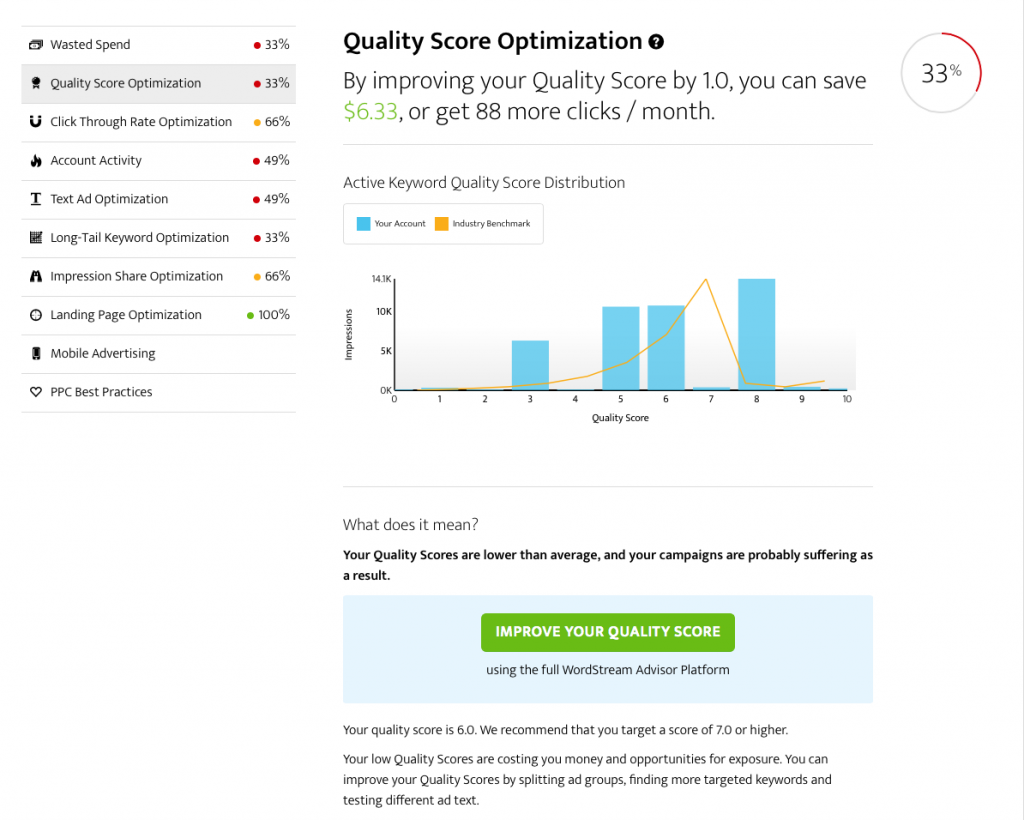
CTR and CR for Your PPC Campaigns
Your CTR and CR are your predetermined KPIs to follow when publishing ads. They are the ones who determine how good an advertising campaign is compared to others.
You may have many impressions, but what do you do if no one clicks on it?
You could ask yourself questions to analyze why your leads buy products from you. For example:
- How can you improve your ads for more clicks?
- How has the CTR evolved throughout the campaign?
- What’s the average CR in my campaigns?
- Are CTR and CR on pair throughout my campaigns?
- Are your CTAs clear enough?
Potential Bid Adjustments
Your bidding strategy plays an important role in your PPC strategy. This aligns with your budget and defines how much you’ll push to appear to your audience.
Since you’re competing with other companies, the best bid will have priority. So, you’ll need a budget if you want to stay on top of your competition.
Consider the following when determining if your budget is enough:
- Are your bids enough compared to your competitors to appear to clients?
- Do you have a correct bidding strategy?
- Is it necessary to adjust the budget for all ad groups?

Keyword Match Type
Match types refer to your keywords’ accuracy for the search query and answer the search intent. This is what helps your ads appear in search results. It directly impacts how your advertising performs.
You can find the following:
- Broad match keywords
- Exact match keywords
- Phrase match keywords
Each term may complement each other to help your product appear on SERPS as paid ads.
Now, you could ask the following questions to help you check if your keywords need adjustment:
- Are your broad match keywords too general?
- Are you targeting the right keywords?
- Are you missing any potential terms?
- Should you try another match type?
Location Targeting
Location targeting refers to the ads’ ability to appear for people in the right places. This makes a massive difference if you have a local business or don’t want to expand nationally yet.
It also could reduce costs by increasing clicks and conversions.
Consider the following:
- Is your location target beneficial for your campaign?
- Is your business local, national, or international?
- Based on your previous answer, should you change your location target?
Check Ad Extensions
Ad extensions are information bits that you can show alongside your ads.
They contain links to specific subpages on your webpage, a call button, product pricing information, and more.
Extensions provide more value to your ads. They could be for:
- Messaging
- Phone calls
- Pricing
- Reviewing
Now, you should ask these questions to discover which extension you use:
- Are your extensions updated?
- Do you have ads that should use extensions?
- Are you losing sales for not using them?
- Should you erase, install or modify any of them?
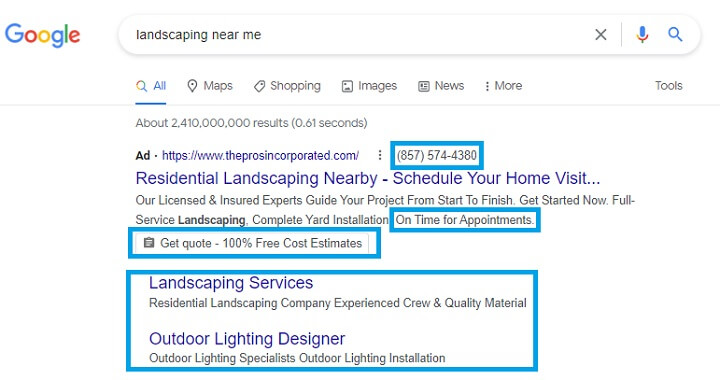
Steps to Conduct a PPC Audit Checklist
Now that you have all the elements for your PPC audit checklist, here are the steps to conduct it.
- Select a date range to audit.
- Download the data from analytics and other PPC platforms.
- Pre Establish your budget and document it.
- Explore your ad content. Include video campaigns and other ad types.
- Check your quality score.
- Review your keywords targeted.
- Review CTR and CR.
- Explore your bidding strategy and results.
- Make a location-targeting assessment.
- Gather zones of wasted ad spend.
These ten steps will allow you to gather all the information you need to complete the last step, the optimization plan.
Building an Optimization Plan After a PPC Audit
The optimization plan includes all the data you have gathered so far into a single spreadsheet to create an audit report with all the flaws you have found.
You could include the following:
- The areas affected and those that need improvement.
- The changes you suggest.
- Short-term and long-term goals according to the business’s vision.
- The impact the changes will have on your campaigns.
- Optimization frequency.
- Improved or new KPIs.
The main importance is applying the changes associated with what you have reviewed. For example, If you checked your ad group and saw a generic ad copy that needs improvement or wrong ad group names, these are valid modifications you should address.
On the other hand, if you haven’t checked the ad schedule plan and still want to modify it, you must review it first to understand if there are flaws.
PPC Audit Use Case
Let’s say you’re a digital marketing manager of an online clothing store.
You’ve been running PPC campaigns on Google Ads for a year, but you’ve noticed that your cost-per-click (CPC) is increasing while your conversion rate is decreasing.
You decide to conduct a PPC audit to understand what’s happening.
- Campaign Structure Review: You examine the campaigns’ structure. Your campaigns are not organized by product categories, making managing and optimizing them difficult. You decide to restructure them based on product categories like “Men’s Clothing,” “Women’s Clothing,” and “Accessories.”
- Keyword Analysis: Next, you analyze your keywords. You notice that you’re bidding on broad-match keywords that drive irrelevant traffic to your site. You switch to exact match and phrase match keywords to attract more relevant visitors.
- Ad Copy and Landing Page Review: You then review your ad copy and landing pages. You discover a generic ad copy not compelling enough to drive clicks, and your landing pages aren’t optimized for conversions. You test new texts and redesign your landing pages to improve your quality score and conversion rate.
- Bid and Budget Management: You also notice you’re spending too much on keywords that aren’t driving conversions. You reduce your bids on these keywords and reallocate your budget to high-performing keywords.
- Performance Tracking: You realize you’re not tracking all the essential metrics. You choose to set up conversion tracking to measure your campaigns’ effectiveness accurately.
After implementing these changes, you notice a significant improvement in your CPC and conversion rate.
Who Can Prepare a PPC Audit?
Now that you know how to do a PPC audit, what if you don’t know where to find all the information you need or don’t have the skilled staff in charge of advertising?
The best choice here is outsourcing the project to a PPC agency that helps you find issues in your strategy to reduce spending and maximize results.
At GamerSEO, we create, audit, and optimize PPC campaigns for desktop and mobile devices so you can make sales while optimizing CPC and CTR.
And if you need other digital marketing services, our SEO and content marketing specialists will complement your business strategy.
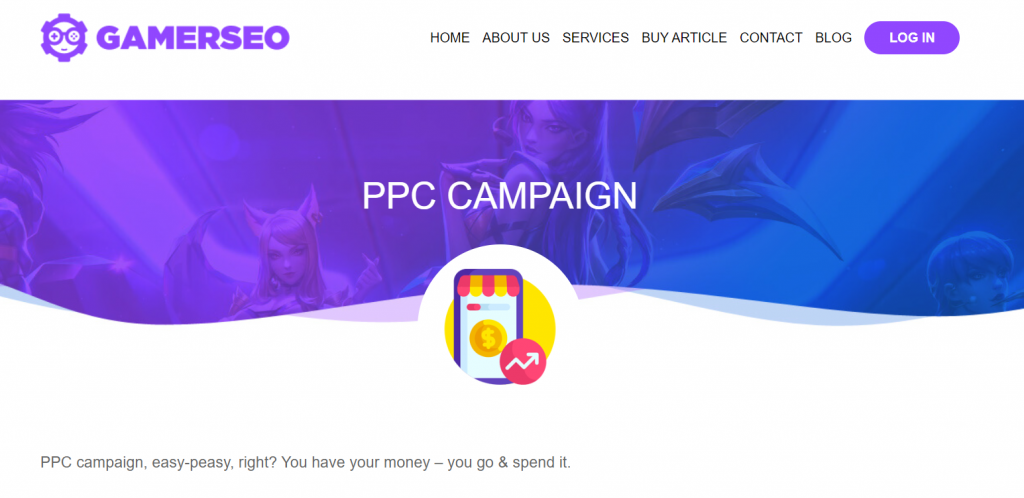
PPC Audit: Budget and Business Optimization at Your Door
Regular assessments are beneficial and essential to maintaining the health and effectiveness of your PPC campaigns. This strategy is not one that you can set and forget. It needs constant monitoring, adjustments, and audits to maximize your return on investment.
This guide will help you understand the concepts of a PPC audit, the information needed to perform one, and who can prepare a keen and comprehensive report to give you insights about improving your business.
Contact us at GamerSEO to receive a PPC audit template with all the insights you need to see better returns.

A PPC specialist who started with organic social media. For several years, the core of his activities are:- Google Ads, Microsoft Ads, Meta Ads, TikTok Ads, Twitter Ads, Linkedin Ads. He has led campaigns with a global reach, e.g. for FootballTeam, G2A, ETOTO, as well as many smaller campaigns in the sports, construction and financial industries. Has full focus on ROAS. Privately, a fan of football, history of wars and Star Wars.

